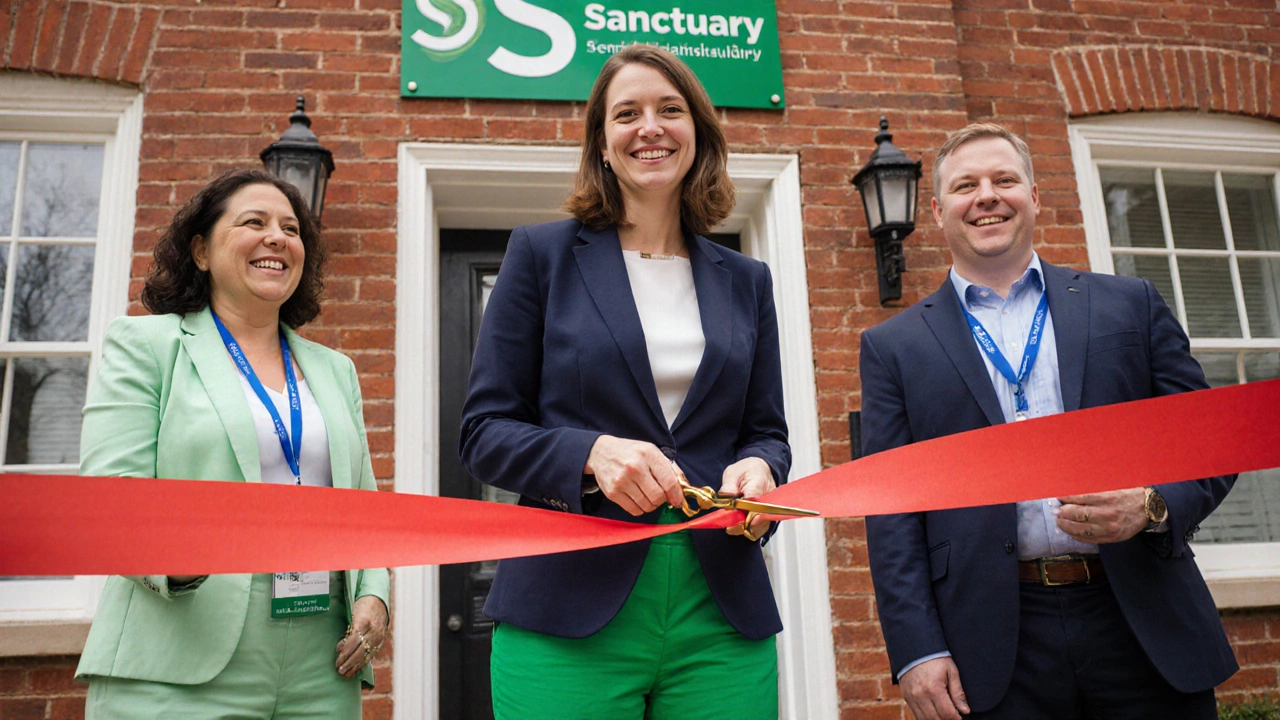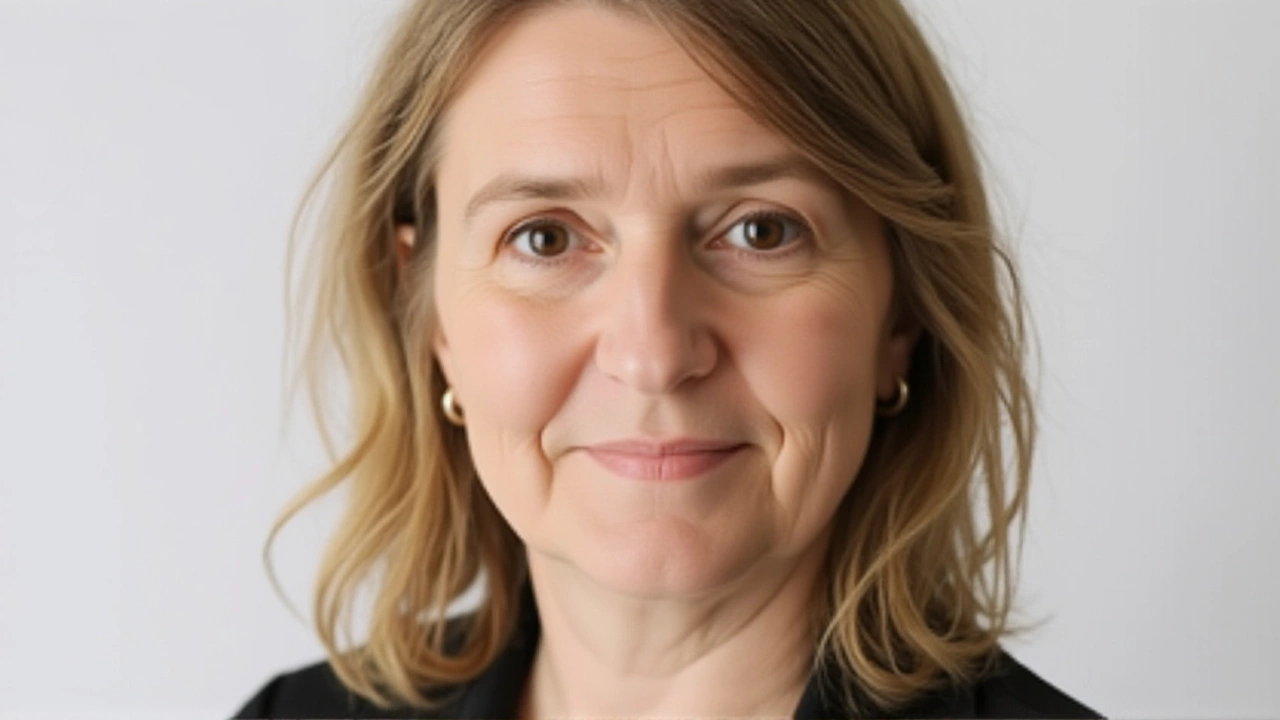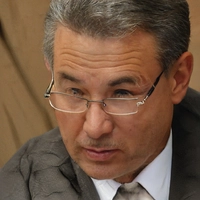When Linda Johnstone, Head of Investment Proposition at Novia Global wrote for IFA Magazine on World Mental Health DayGlobal, she argued that technology isn’t just a convenience for remote financial advisers – it’s a lifeline for their mental wellbeing.
Johnstone, who has been working from her home office in the United Kingdom since 2013, described the shift from pre‑COVID‑19 privilege to post‑pandemic pressure. Before 2020, working from home (WFH) was a perk enjoyed by a lucky few. After the pandemic, the same arrangement became synonymous with isolation, burnout, and the nagging fear of slipping productivity.
Why Belonging Matters for the Advisory Crowd
Financial advisers often operate as solo entrepreneurs, juggling client calls across continents while navigating ever‑changing regulations. That solitary nature makes the sense of belonging—whether through a shared platform, a chat channel, or a virtual coffee break—a critical buffer against anxiety.
Johnstone noted, “For advisers working across borders and time zones, staying connected is no longer a convenience—it's a lifeline.” She emphasized that firms must "maximise the acknowledged pros of WFH and minimise the emerging cons – mental health issues foremost among them."
Tech Tools Turning Isolation into Interaction
Several technology trends have emerged as quiet heroes:
- Integrated video‑conferencing suites that auto‑schedule cross‑time‑zone meetings, reducing the cognitive load of time‑zone gymnastics.
- AI‑driven peer‑matching platforms that connect advisers with similar client profiles for informal knowledge‑exchange.
- Secure, cloud‑based client‑relationship management (CRM) systems with built‑in wellbeing dashboards, flagging unusually long work hours.
- Virtual "watercooler" spaces where advisers can drop in for non‑work chat, mimicking office camaraderie.
These tools not only streamline processes but also embed regular human contact into the daily rhythm of remote work.
Data Spotlight: RedArc’s Findings on Anxiety and Depression
To ground the conversation, Johnstone referenced a study from RedArc. Christine Husbands, a commercial consultant at the firm, shared that 83% of individuals experiencing severe anxiety or depression improved to a moderate level or better within three to four months when they received timely professional support.
"Supporting mental health conditions requires the expertise of qualified, clinically trained practitioners," Husbands said. "Our data shows that with the relevant professional help, people can make significant strides towards recovery within a relatively short period; however, support must remain in place for as long as it is needed."
Her remarks underline a simple truth: technology can provide the connective tissue, but professional mental‑health services remain indispensable.

Industry Voices: From Royal London to Independent Firms
The article also cited Royal London's 2024 publication *The Meaning of Value*, which argues that true client value now incorporates adviser wellbeing. When advisers are healthy, their advice quality improves, creating a virtuous cycle for firms.
Independent boutique firms have begun piloting "wellbeing weeks" – scheduled pauses where advisers are encouraged to log off, attend virtual yoga, or join peer‑support circles. Early feedback suggests a measurable dip in reported stress levels during these periods.
Looking Ahead: Policies, Partnerships, and Persistence
Johnstone warned that the debate over WFH "will doubtless rage on," but she urged firms to treat the challenge with the seriousness it deserves. She recommends three concrete steps:
- Adopt a technology‑first strategy that prioritises easy, secure communication across time zones.
- Partner with mental‑health providers to offer confidential counseling accessible via mobile apps.
- Embed regular wellbeing check‑ins into performance reviews, making mental health a KPI rather than an afterthought.
When these measures align, advisers can maintain a healthy work‑life balance while staying physically close to their families – something Johnstone herself values, noting that remote work lets her be "physically close to my children."

Key Facts
- World Mental Health Day 2024 fell on October 10, marking the 32nd anniversary of the observance.
- Novia Global employs over 1,200 advisers in more than 30 countries.
- RedArc’s study found 83% improvement in severe anxiety/depression cases within 3‑4 months with professional support.
- Royal London’s latest report links adviser wellbeing directly to client satisfaction scores.
- 70% of remote advisers surveyed in 2023 reported feeling "isolated" at least once a week.
Frequently Asked Questions
How does technology specifically reduce isolation for remote financial advisers?
Tools like AI‑matched peer networks and secure video‑rooms give advisers daily opportunities to share experiences, ask quick questions, and build camaraderie. Unlike email threads, these platforms provide real‑time feedback, which research shows lowers perceived loneliness by up to 30%.
What role do mental‑health providers play in supporting advisers?
Providers offer confidential counseling, crisis intervention, and ongoing therapy that complement tech‑based check‑ins. RedArc’s data highlights that access to qualified clinicians accelerates recovery, making professional help a critical safety net beyond digital platforms.
Are there measurable business benefits to prioritising adviser wellbeing?
Yes. Firms that embed wellbeing into their KPIs report lower turnover, higher client retention, and a 12% increase in advisory revenue on average, according to Royal London’s 2024 value study.
What should firms do immediately to support remote advisers after World Mental Health Day?
Start by auditing current communication tools for accessibility, negotiate a partnership with a reputable mental‑health service, and roll out a pilot "wellbeing week" to gauge impact. Clear, measurable goals help keep momentum.

